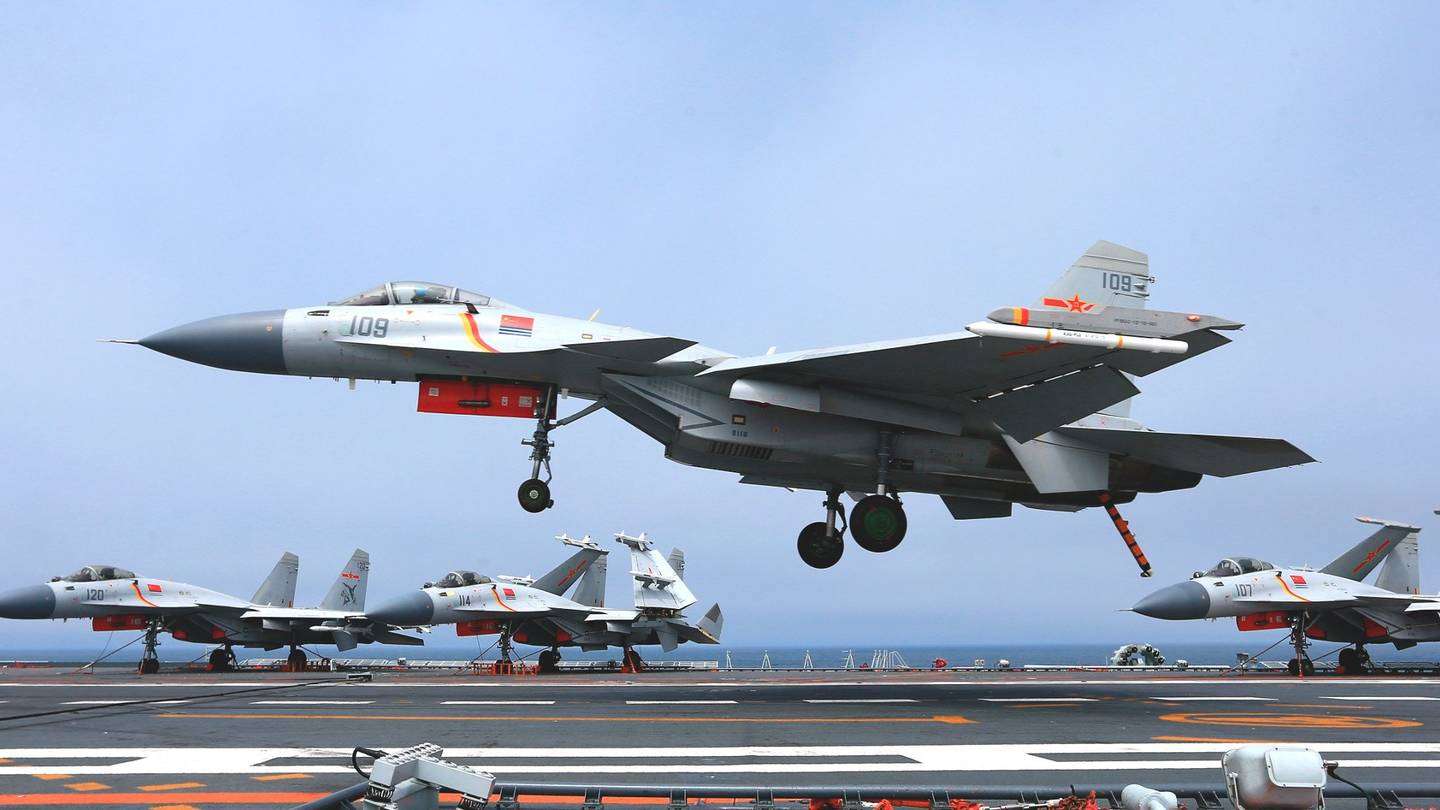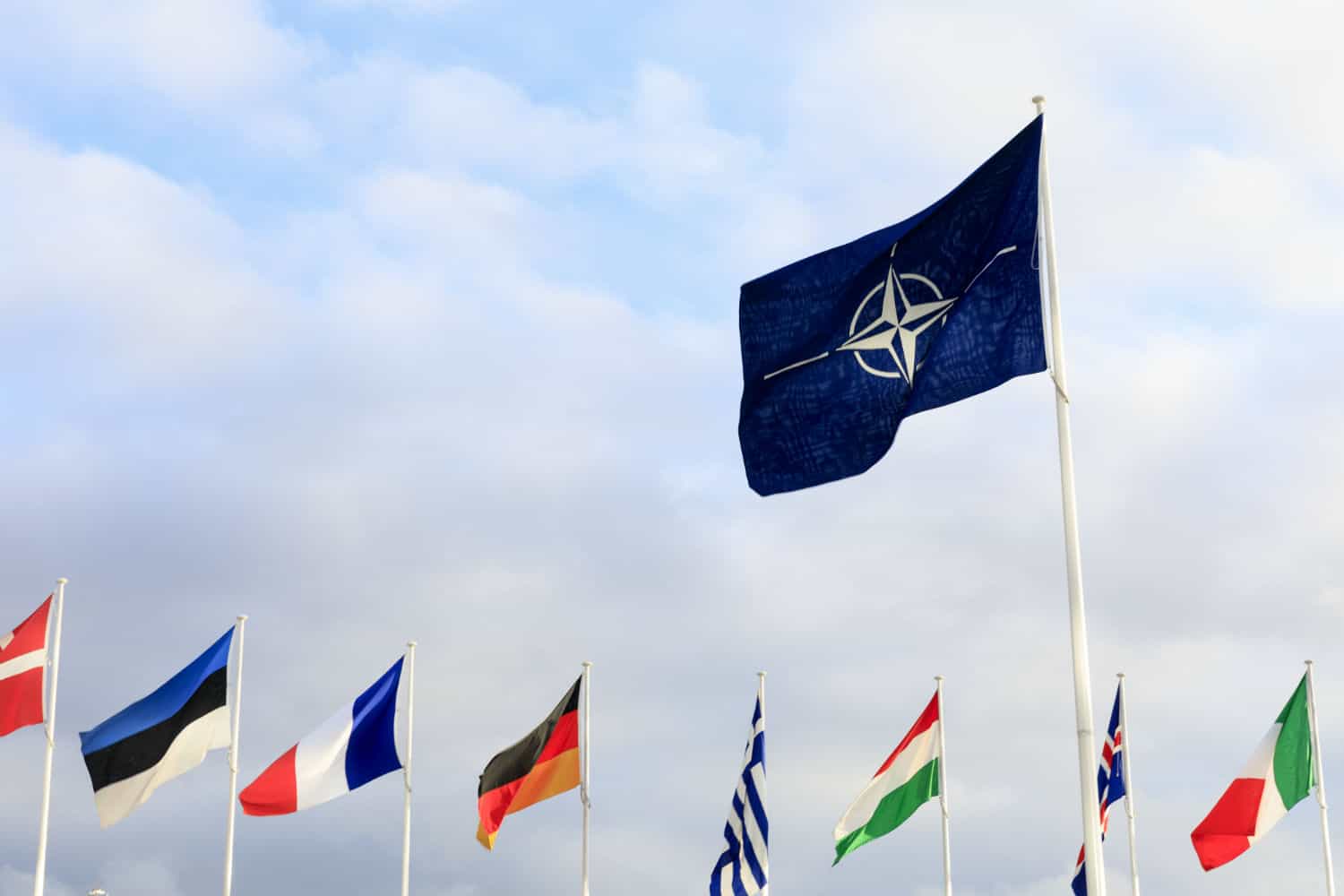China unveiled a set of photos of the Chinese People’s Liberation Army (PLA) Navy’s Su-30MKK fighter jets’ first training in the new year on January 6, 2019. These photos “inadvertently” revealed a detail: a Su-30 MK2 fighter preparing to take off was mounted with a Chinese PL-12 air-to-air missile.
This does not seem to be anything special, but it indicates that China has already been able to modify the Su-30MKK’s fire control system to give it the capability to use China’s homegrown weapons. The last thing that aircraft carriers want to see is the Su-30 MK2 fighter jet carrying YJ-12 and YJ-18 anti-ship cruise missiles.
Su-30MKK is known as the most powerful fighter jet of the Su-30 family. It has enhanced the structure on the basis of the former Su-30 fighters. It has two internal heavy-duty hanging points that have been enclosed since the Su-27 fighters, increasing its total payload to 12 tons.
Su-30MKK also has increased its maximum take-off weight. Its maximum range is almost 4,000 kilometers, and therefore it can patrol the entire South China Sea with the support of tanker aircraft.
Since 2004, Su-30MKK fighter jet has been an important air-borne anti-ship force in Chinese military. The Su-30MKK fighter jet, H-6 Strategic Bomber and JH-7 Fighter-Bomber shoulder together the heavy responsibility of China’s long-range anti-ship attack task.
However, today, more and more shortcomings of the Su-30MKK fighter jet have been exposed after 15 years. As a Russian product, it originally can only carry the Russian-made KH-31 and KH-41 anti-ship missiles. These two missiles are too old, and their performance have long lagged behind that of China’s YJ-12.
Moreover, the KH-31 has been exported to the US to be used as target missile, and it is likely that the US has found a way to deal with it. Therefore, today’s Su-30MKK has become a “chicken rib” for China and its bomb-bearing capacity and cruising range are under-utilized.
But China has adopted its own method, which is to decrypt the fire control system of Su-30MKK, and make it compatible with China’s homegrown weapons.
The fire control system is the system used by fighter jets to manage, aim at and guide offensive weapons, and it is one of the most important systems on any fighter jet. The country of origin generally does not prohibit the user from modifying the system of exported fighter jets, but it will not provide decryption (or charge a fee) to do so. In this way, the user is on his own when it comes to technical system modification.
India repeatedly hit such wall when it was trying to modify the fire control system of the Mirage 2000 multi-role fighter jet, and it had to pay $800 million to ask Dassault Aviation (an international French aircraft manufacturer of military, regional, and business jets, and is a subsidiary of Dassault Group) for help.
China has already had a fairly mature experience in the research and development(R&D) of fighter jet fire control system and the use of Russian fighter jets. China also has experience in upgrading Russian fighter jets independently. Therefore, China successfully modified the fire control system of Su-30MKK and it is now compatible with China’s homegrown weapons (maybe it has been replaced with a domestic fire control system).
The photo of a Su-30MK2 mounted with a Chinese PL-12 air-to-air missile in the training on January 6th is a proof of such accomplishment. Since PL-12 can be used, the YJ-12 missile can also be used.
The Su-30MKK fighter jet has three, 2-ton heavy hanging points while the YJ-12 missile just weighs two tons. That is to say, a Su-30MKK fighter jet can mount three YJ-12 missiles to attack targets within a radius of 1,500 km. The distance between Zengmu Reef and Chinese Guangdong Province is only 1,900 kilometers.
A Su-30MKK fighter jet that takes off from the Chinese mainland can attack enemy targets within more than half of the South China Sea. And it can cover the entire South China Sea if it takes off from the Yongxing Island.
The super high speed of the YJ-12 missile is a huge threat to the Aegis system. It is conceivable that the Su-30MKK fighter jet mounted with YJ-12 missiles will become one of the most threatening weapons against enemy’s aircraft carrier fleets.











